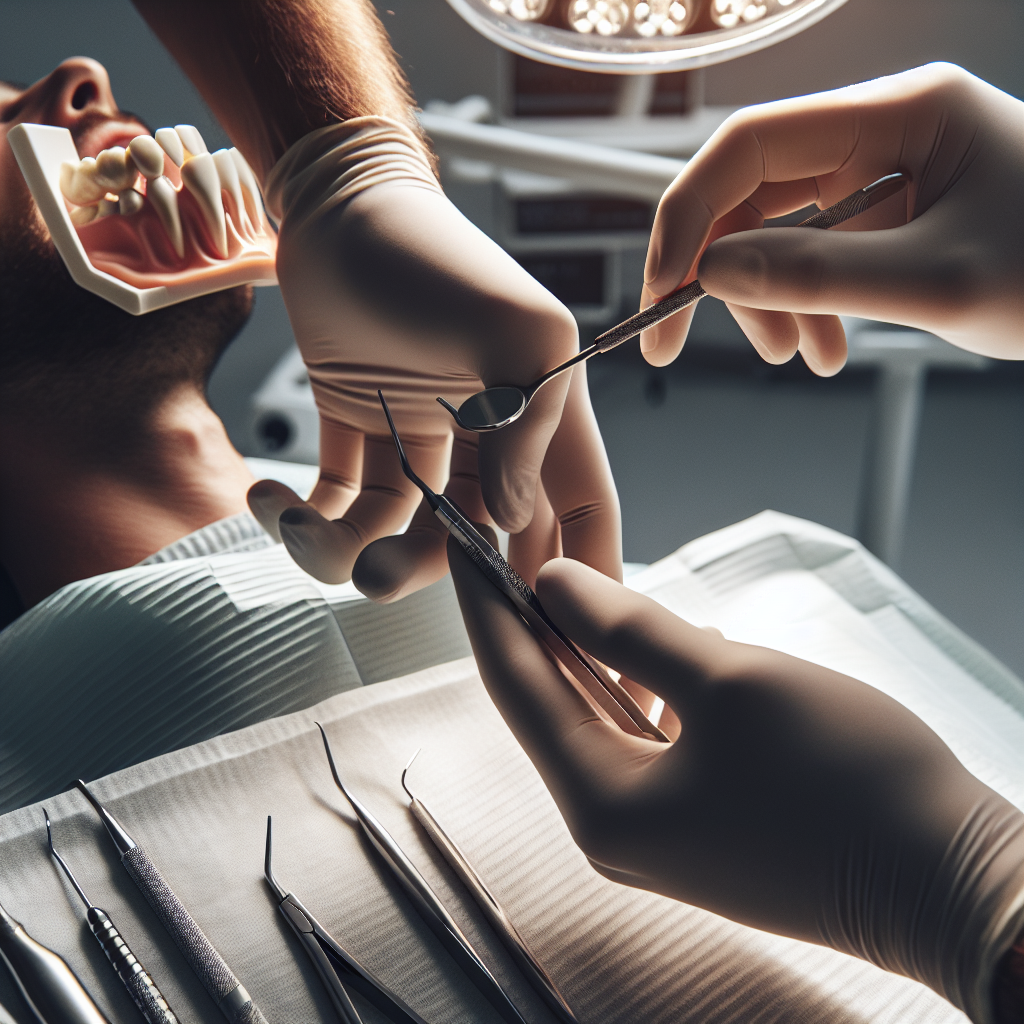Step-by-Step Guide: What to Do Before Wisdom Teeth Removal with Local Anesthesia3 min read

Preparing for wisdom teeth removal with local anesthesia can be daunting, but proper planning ensures a smooth procedure and recovery. This step-by-step guide provides essential tips to help you get ready for your surgery. From pre-procedure instructions to dietary restrictions and medication guidelines, we cover everything you need to know for a successful wisdom tooth extraction.
Pre-Procedure Instructions
Following your dentist’s pre-procedure instructions is crucial for a safe and effective wisdom teeth removal. These guidelines help minimize risks and promote optimal healing.
Arrange Transportation
Although local anesthesia doesn’t put you to sleep, it’s essential to arrange for a responsible adult to drive you home after the procedure. The numbness and disorientation following surgery can make driving unsafe.
Wear Comfortable Clothing
Choose loose-fitting, comfortable clothing for your appointment. Avoid wearing tight collars, as they may interfere with the surgical area. Also, skip jewelry and contact lenses, as you’ll need to remove them before the procedure.
Inform Your Dentist of Medical Conditions
Notify your dentist of any medical conditions, allergies, or medications you’re taking. This information helps them tailor the anesthesia and treatment plan to your specific needs, minimizing potential complications.
Dietary Restrictions
Proper nutrition before and after wisdom teeth removal is essential for a smooth recovery. Follow these dietary guidelines to promote healing and avoid complications.
Fasting Requirements
While fasting isn’t typically required for local anesthesia, your dentist may recommend avoiding food and drinks for a few hours before the procedure. This helps prevent nausea and vomiting during surgery.
Soft Food Diet
Stock up on soft, easy-to-chew foods for the days following your surgery. Some recommended options include:
- Smoothies and milkshakes
- Yogurt and pudding
- Mashed potatoes and soft vegetables
- Soups and broths
- Scrambled eggs
Avoid crunchy, chewy, or spicy foods that can irritate the surgical site and delay healing.
Medication Guidelines
Managing pain and preventing infections are key aspects of the wisdom teeth removal recovery process. Follow these medication guidelines for optimal results.
Pain Management
Your dentist will prescribe pain medications to help manage discomfort after the procedure. Take these as directed, and never exceed the recommended dosage. Over-the-counter pain relievers like ibuprofen or acetaminophen can also help alleviate mild to moderate pain.
Antibiotics
In some cases, your dentist may prescribe antibiotics to prevent infection. Take the full course of antibiotics as directed, even if you feel better before completing the prescribed duration.
Avoiding Blood Thinners
Avoid taking blood-thinning medications like aspirin or naproxen for at least a week before your surgery, as they can increase the risk of bleeding. If you take prescription blood thinners, consult your dentist and physician for guidance on temporarily discontinuing them.
Frequently Asked Questions
Can I brush my teeth before wisdom teeth removal?
Yes, you can brush your teeth the morning of your surgery. However, avoid swallowing water or mouthwash to minimize the risk of nausea during the procedure.
How long does local anesthesia last after wisdom teeth removal?
The numbness from local anesthesia typically lasts 2-4 hours after the procedure. Avoid eating, drinking, or chewing until the numbness subsides to prevent accidentally biting your cheeks or tongue.
When can I resume normal activities after wisdom teeth removal?
Most patients can resume normal activities within a few days of the procedure. However, avoid strenuous exercise or heavy lifting for at least a week to minimize the risk of bleeding and promote healing.
Conclusion
Preparing for wisdom teeth removal with local anesthesia involves following pre-procedure instructions, adhering to dietary restrictions, and managing medications. By taking a step-by-step approach and closely following your dentist’s guidelines, you can ensure a smooth procedure and a comfortable recovery.
Remember, every patient’s experience is unique, and your dentist is your best resource for personalized guidance. Don’t hesitate to ask questions and voice any concerns you may have throughout the process. With proper preparation and care, you’ll navigate your wisdom teeth removal with confidence and ease.
